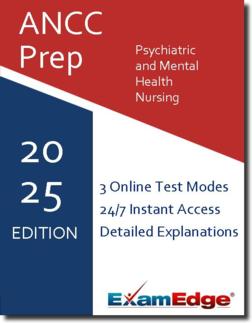ANCC Psychiatric and Mental Health Nursing (RN) Practice Tests & Test Prep by Exam Edge - Blogs
Based on 25 Reviews
- Real Exam Simulation: Timed questions and matching content build comfort for your ANCC Psychiatric and Mental Health Nursing test day.
- Instant, 24/7 Access: Web-based ANCC Psychiatric and Mental Health Nursing practice exams with no software needed.
- Clear Explanations: Step-by-step answers and explanations for your ANCC exam to strengthen understanding.
- Boosted Confidence: Reduces anxiety and improves test-taking skills to ace your ANCC Psychiatric and Mental Health Nursing (PSYRN).

Exam Edge Blogs for ANCC Psychiatric and Mental Health Nursing

How to Become a Mental Health Nurse Practitioner: A Comprehensive Guide
Mental health nurse practitioners (MLNPs) are in demand as more patients seek health care. They play a role in assisting patients who face difficultie...
Read MoreExam Edge Blogs for ANCC Psychiatric and Mental Health Nursing

How to Become a Mental Health Nurse Practitioner: A Comprehensive Guide
Mental health nurse practitioners (MLNPs) are in demand as more patients seek health care. They play a role in assisting patients who face difficultie...
Read More

